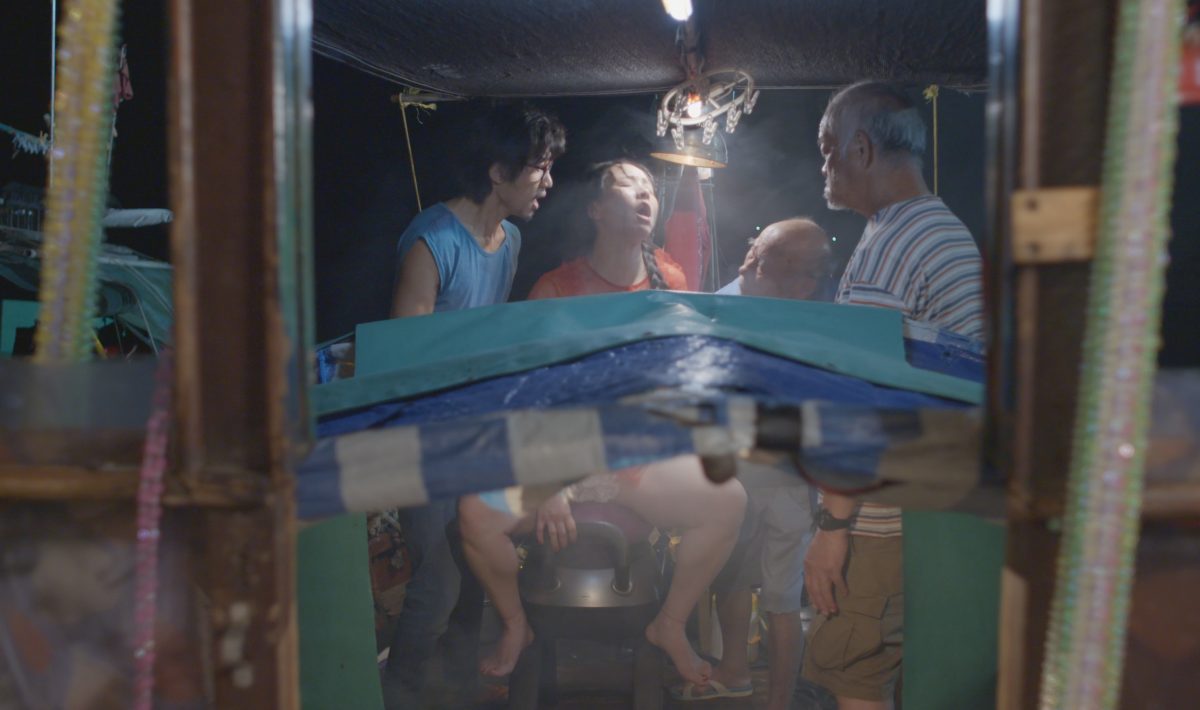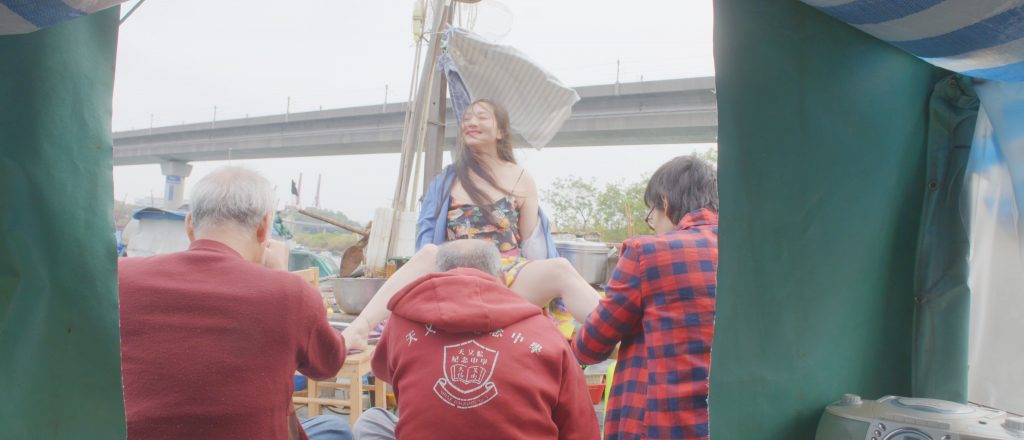Before this year’s Five Flavors, I carefully learned about the work of Fruit Chan, whose retrospective is one of the blocks of the 13th edition of the festival. I can’t say that I have fallen in love with this artist, but I cannot be disappointed either. The cinema of the provocateur from Hong Kong (who from the perspective of the Western viewer probably is not always particularly provocative – well, except for Dumplings from 2004) kept an exceptionally equal level, and after many years is an invaluable insight into the rapidly changing city and more generally – the world of the East.
Fruit Chan likes to stick to the street. Probably the flagship example here would be Little Cheung from 1999. It is a story about an orphan boy who is raised by the underworld and small buyers – in a word: by the street. Slums, characteristic, dingy, multi-story housing estates and poverty appear in many of the artist’s other films. The director is good at portraying children (Little Cheung or Hollywood Hong Kong from 2001) and those who for various reasons (poverty, madness, otherness, quirkiness) do not fit into society (Made in Hong Kong from 1997 or Dumplings).
His latest film, Three Husbands, is the final part of the trilogy of prostitutes almost 20 years after the previous installment in the contractual trilogy (after Durian Durian from 2000 and Hollywood Hong Kong from 2001). Fruit Chan does not differ from the style known from his previous films. He still likes the outskirts – the human margin and life on the border between Hong Kong and China. This influence of the great superpower on – after all – autonomous (but struggling to maintain this independence) Hong Kong is a subtle leitmotiv of most of the artist’s films.
Sticking to the subject of the trilogy, Three Husbands, despite its title, mainly talk about a prostitute. This time, compared to previous films, the perspective is indeed provocative. The world is seen through the eyes of a girl who lives on a boat and provides sexual services to an entire port. In addition, she suffers from hypersexuality and other disorders – she practically does not speak, behaves a bit like a clumsy child. She was sold by her father (who is also the father of her child) to another man who later acted as a pimp, and eventually sold her to another man for his wife[1]. The whole “family” begins to travel together.
Fruit Chan relishes violence in his film. Although he himself claims that his film is not anti-feminist, it’s hard not to get the impression that it is at least offensive. Heroes do not cause sympathy. This is a problem because they deviate from the norm. One is a cripple, the other a fool, the third a nitwit. It is the same different world we have met in the artist’s earlier films. This time, however, it is a world that causes more contempt than compassion or interest. It is absolutely devoid of delicacy towards sick people, alienated or suffering from some defect – and is not overcame even with sharp humor, which with each subsequent minute of the film seems to be more and more ironic of such people[2].
The problem is also with the woman’s figure. She is not a full-fledged conscious heroine like a girl from Durian Durian or a prostitute from Hollywood Hong Kong. What is more, she doesn’t change significantly in the film. Three Husbands are largely made up of sex scenes. It’s hard to say if these scenes have any deeper meaning besides criticizing China’s impact on Hong Kong.
In other words, the male gaze is not overcame in the film in any way. Sometimes the scenes are fun, more or less ingenious, sometimes discomforting, sometimes disgusting. However, they always present a violent situation which – itself – the director does not seem to criticize.
So I understand and agree with the accusations of feminist circles about
this film – regardless of the director’s good intentions. It is impossible,
however, to refuse the brilliance of the lead actress’, Chloee Maayan’s, performance.
It remains to hope that her experience differs from that of Nina
Wu.
[1] I use the word “sold” consciously, because it was the custom of the region’s culture to sell daughters to future husbands who gained full power over them.
[2] Even if this procedure were a way of criticizing male violence against women, it would not change the fact that it can be stigmatizing towards sick people.







